Elaine at New Farmerette set up a bookworms bloggers group on facebook recently and I’m delighted to be back into the habit of writing up book reviews again. I often read a good book and intend to write a review but don’t get around to it and I often read a terrible book and am dying to warn others from investing their money in it but as I say to the kids, if you can’t say anything nice don’t say anything at all!!
For our first review, each of us are reviewing a book we read recently and for February, its Bossypants by Tina Fey.
I’m going to review a few books here – all historical novels as I’ve read a few of them lately, some good, some not so good.
 First up is The Sealed Letter by Emma Donoghue. I’d read Slammerkin by Donoghue many years ago and while I thought there were some weaknesses in it, I thought it was a good novel and although it was based on a report in a newspaper, she really gave life and vitality to the characters who had become embroiled in prostitution. The Sealed Letter is based around a notorious divorce case in the 1860s and while Donoghue had a significant amount of data to build the story on, from newspaper reports of the divorce to journalist comments on the people involved and of course, the court reports. The contents of the Sealed Letter were never revealed so Donoghue was free to decide what to do with it.
First up is The Sealed Letter by Emma Donoghue. I’d read Slammerkin by Donoghue many years ago and while I thought there were some weaknesses in it, I thought it was a good novel and although it was based on a report in a newspaper, she really gave life and vitality to the characters who had become embroiled in prostitution. The Sealed Letter is based around a notorious divorce case in the 1860s and while Donoghue had a significant amount of data to build the story on, from newspaper reports of the divorce to journalist comments on the people involved and of course, the court reports. The contents of the Sealed Letter were never revealed so Donoghue was free to decide what to do with it.
It took me 3 attempts to ‘get into’ the novel. The opening chapters don’t tend to indicate the level of intrigue and indeed, historical interest, that is incorporated in the mid to late parts of the novel, and indeed, seem to be scattered with occasional historical references such as which transport is used by families or by single people and which women have to travel in due to respectability. ?However, on the third attempt over Christmas, I got past those opening chapters and thoroughly enjoyed it. So many issues are raised – the hints at the different issues that various suffragettes prioritised, the suggestions of strife that were largely left unsaid between these middle class women, the sexual double standards, the idleness of married women, the suggestions of lesbian relationships, the codes of conduct and the personalities of the two main characters. ?Emily ?Faithfull becomes a suffragette, a feminist, owns her own business at the printing press, smokes and lives independently. Her one time best friend, Helen Codrington is what the suffragettes abhor, a bored middle class wife, a social butterfly, inept, having affairs. It is interesting to see how society views both women. ?I felt it gave a good insight into the historical period by fleshing out a most interesting and important divorce case and highlights the cruelty dealt to mothers at the time as they had no rights regarding custody or even seeing their children once the husband had made that decision.
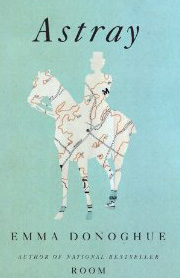 I also read ‘Astray’ by Emma Donoghue which is a collection of short stories written between 2004 and 2012. I’d actually read a couple of them before and was a bit disappointed as I thought all of them had been written in 2011/2012. ? They are all historical too, fleshing out a number of letters found in an archive or a newspaper report or even a death notice. ?Interestingly done as they gave voice to facts and I could find myself wondering if the characters really were like those people, now deceased. ?How accurate was Donoghue in her portrayal and did it really matter? ?Some of the stories ended too soon which I suppose shows that it was a good story, I wanted to read more about the characters. ?Some of the historical detail could have fuelled a whole novel rather than a short story!
I also read ‘Astray’ by Emma Donoghue which is a collection of short stories written between 2004 and 2012. I’d actually read a couple of them before and was a bit disappointed as I thought all of them had been written in 2011/2012. ? They are all historical too, fleshing out a number of letters found in an archive or a newspaper report or even a death notice. ?Interestingly done as they gave voice to facts and I could find myself wondering if the characters really were like those people, now deceased. ?How accurate was Donoghue in her portrayal and did it really matter? ?Some of the stories ended too soon which I suppose shows that it was a good story, I wanted to read more about the characters. ?Some of the historical detail could have fuelled a whole novel rather than a short story!
Some of the short stories will stay with you for a long time – the tale of a young boy fighting in 1776 when British and German troops systematically raped number of women in a garrison over 16 days, Donoghue reveals the thoughts of the young boy. ‘Vanitas’ is set in Louisiana, a relatively wealthy French family of whom the matriarch’s personality is revealed by the thoughts and speech of the 15 year old daughter. References to Maman’s breeding programme resulting in more small negres than they know what to do with is a lie that is hard to get out of your mind, not to mention the branding and selling of slaves.
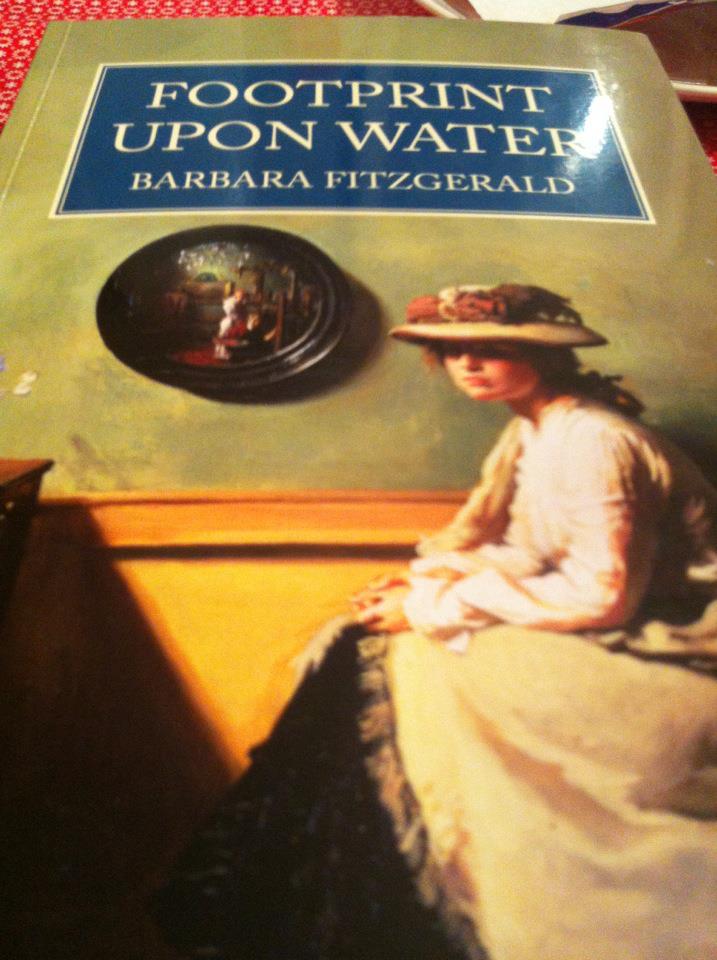 I read a review of ‘Footprint upon Water‘ in the Irish Independent and it sounded like a very good read, a historical novel spanning 40 years of Irish history from pre-World War One to the post WW2, focusing on how a Protestant family (of 5 sisters and a niece) in Cork survived the changes in Ireland from the Easter Rising to after the Civil war. ?It was originally published about ten years ago, a year after the author died and was republished last year.
I read a review of ‘Footprint upon Water‘ in the Irish Independent and it sounded like a very good read, a historical novel spanning 40 years of Irish history from pre-World War One to the post WW2, focusing on how a Protestant family (of 5 sisters and a niece) in Cork survived the changes in Ireland from the Easter Rising to after the Civil war. ?It was originally published about ten years ago, a year after the author died and was republished last year.
I was really disappointed. I like a historical novel to throw some light on historical events and how the characters react to them. This novel could almost have been set anywhere or at any time. There were a few references to the civil war and to the Black and Tans but unless one knew of them, it wasn’t at all clear why there were soldiers in their house or who was fighting who and they were only mentioned so one character could be shot!
The main theme seemed to be to highlight how women were illequipped to deal with earning their own living, their education being limited to teaching by governesses almost as poorly educated as they were. There are numerous references to how silly two of the sisters are, as they couldn’t help it, not having been encouraged to use their brains. Their father was domineering and cruel. When he died, it emerged that they were all almost penniless and their life changed from having a large country house with many servants to freezing in the same country house with a single maid. The eldest thought she would marry when the father died but couldn’t afford to do so. ?Her hardness of heart, her fiercely religious nature and her increasing cruelty became more evident as the years went on – and we were left to ask ourselves the question – would her personality have been different if she could have married and had her own children and been financially stable? I didn’t care to be honest, I felt that not enough of any of the characters thoughts were revealed to allow us to sympathise or empathise with them or indeed to even care.
We find out what happened to all of the sisters, almost as asides, almost as if the author was tying up a loose end. I won’t spoil the ending if you do decide to read it but to me, it was disappointing. All neatly tied up – I’d prefer to have been left wondering!
This novel could have been set at any time between 1700 and 1950 – how middle class and aristocratic girls were encouraged to succeed at accomplishments and not to understand nor interfere in financial matters nor earn their own living. It would have been a stronger novel if there were more reference to and commentary on events happening in Ireland. ?Apart from the inconvenience and the danger of being shot (and a neighbour being captured and killed), there were no references to how these sisters felt about the Easter Rising, WW1, the war of Independence, the civil war, the shooting of Michael Collins, ?even De Valera – maybe this emphasised their inability to analyse what was going on around them and show how caught up they were in their own little world. ?It was republished by Somerville Press, the author married a Somerville – is that a coincidence? All in all, a disappointing read and I can’t understand how the reviewer thought it offered a great snapshot into an exciting period in Irish history.
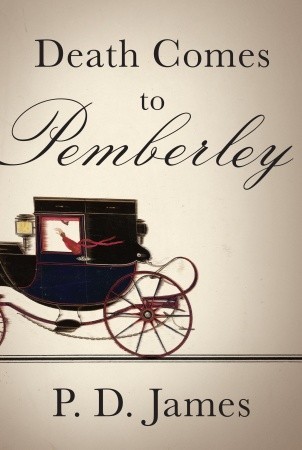 The last historical novel I’m going to review is ‘Death comes to Pemberley’ by P D James. It’s quite a while since I read it but I thought I’d include it here. ?Perhaps naturally enough, it isn’t a patch on ‘Pride and Prejudice’ but I enjoyed partaking in the ‘make believe’ of what might have happened to each of the Bennet sisters in their marriages. ?Taking a death and suspected murder as the main storyline, there is a level of intrigue to take the reader through to the end of the novel. While it contained occasional one-liners, it just seemed weak and uninteresting. ?The Elizabeth Bennet of Pride and Prejudice, fiery, principled, passionate, loyal, decisive, had metamorphosed into a dull, uninspired, middle aged Mrs Darcy, not at all what I expected. Darcy was treated in a better light but by the time I got to the end of the novel, I didn’t really care who had committed the novel. ?While it was nice to imagine what life had turned out like for Elizabeth and Darcy, somehow this didn’t match what I might have surmised. I’d prefer to reread Pride and Prejudice and let my own imagination take me there. ?Sequels by other authors rarely work, in my opinion, and this one didn’t either.
The last historical novel I’m going to review is ‘Death comes to Pemberley’ by P D James. It’s quite a while since I read it but I thought I’d include it here. ?Perhaps naturally enough, it isn’t a patch on ‘Pride and Prejudice’ but I enjoyed partaking in the ‘make believe’ of what might have happened to each of the Bennet sisters in their marriages. ?Taking a death and suspected murder as the main storyline, there is a level of intrigue to take the reader through to the end of the novel. While it contained occasional one-liners, it just seemed weak and uninteresting. ?The Elizabeth Bennet of Pride and Prejudice, fiery, principled, passionate, loyal, decisive, had metamorphosed into a dull, uninspired, middle aged Mrs Darcy, not at all what I expected. Darcy was treated in a better light but by the time I got to the end of the novel, I didn’t really care who had committed the novel. ?While it was nice to imagine what life had turned out like for Elizabeth and Darcy, somehow this didn’t match what I might have surmised. I’d prefer to reread Pride and Prejudice and let my own imagination take me there. ?Sequels by other authors rarely work, in my opinion, and this one didn’t either.
That’s it for my latest historical novel reads 🙂






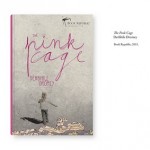
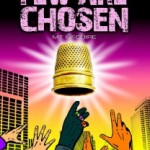


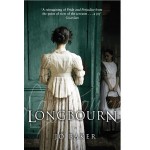
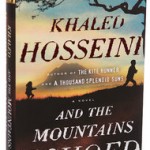
Jennifer
Wow, you did quite a lot of reading! I was really interested to hear about what you thought of the Emma Donoghue books since I just finished reading her as well. Sad to hear about Death Comes to Pemberley as well. You are right though, those types of book seldom work out. Those authors don’t seem to be as connected to the characters perhaps.
Lorna
Hi Jennifer,
I like the way Donoghue takes a historical occurance or letter and is inspired from that to write a novel or short story. Apparently Maeve Binchy used to be inspired by conversations she overheard 🙂